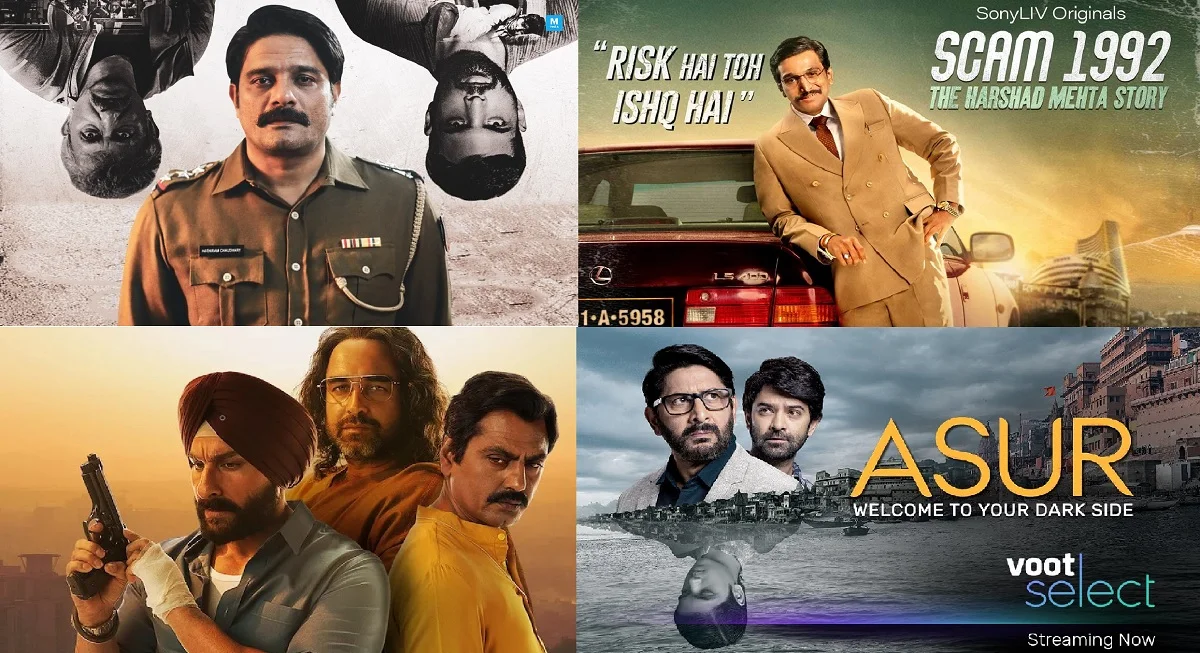
Introduction
Over the past few years, Indian web series have seen a meteoric rise, both in terms of popularity and quality. With the advent of streaming platforms, the entertainment landscape in India has undergone a radical transformation. These web series have not only captivated domestic audiences but have also garnered international acclaim. Offering a diverse range of genres, from intense thrillers like “Scam 2003” to gripping dramas such as “Mirzapur Season 3,” Indian web series have something for everyone.
This surge in high-quality content has positioned web series as a significant part of the entertainment industry in India. The storytelling, production value, and acting have set new benchmarks, compelling audiences to binge-watch series like “The Family Man Season 3” and “Made in Heaven Season 2.” The allure of these shows lies in their ability to delve deep into varied narratives, providing an immersive experience that traditional television often falls short of delivering.
In this post, we aim to highlight the top 10 Indian web series of 2024 that you shouldn’t miss. These series have been carefully selected based on their storytelling, production quality, and audience reception. From the intense crime drama “Delhi Crime Season 2” to the dark and intriguing “Paatal Lok Season 2,” each series promises to offer something unique. Whether you are a fan of psychological thrillers like “Asur Season 2” or prefer the light-hearted yet profound storytelling of “Panchayat Season 3,” this list has got you covered.
1. Scam 2003: The Telgi Story – A Deep Dive into SonyLIV’s Riveting Web Series
The success of “Scam 1992: The Harshad Mehta Story” paved the way for another gripping tale of financial intrigue, and SonyLIV has delivered just that with “Scam 2003: The Telgi Story.” This web series delves into the life of Abdul Karim Telgi, the mastermind behind one of India’s most notorious financial frauds. Here, we explore the series’ plot, characters, production, and impact.
Plot Overview
“Scam 2003: The Telgi Story” chronicles the rise and fall of Abdul Karim Telgi, a fruit vendor turned criminal genius. Telgi’s journey from humble beginnings in Khanapur, Karnataka, to orchestrating a massive counterfeit stamp paper scam that shook the foundations of India’s financial system is nothing short of extraordinary.

The Stamp Paper Scam
One Man, 19 Years, and Telgi’s Takedown
The reward – Upholding the pride of India and uncovering ₹ INR 30,000 Cr scam….
The series meticulously captures Telgi’s methodical planning and execution of the scam. By establishing fake stamp paper printing presses and creating a vast network of corrupt officials, Telgi managed to sell counterfeit stamp papers across multiple states, defrauding the government of approximately ₹30,000 crores (about $4 billion). The series explores the intricacies of his operations, the law enforcement’s pursuit, and the eventual downfall of Telgi and his empire.

Characters and Performances
The portrayal of Abdul Karim Telgi by a seasoned actor is central to the series’ success.
Gagandev Riar, who plays Telgi, delivers a powerful performance, capturing the complexity of his character – from his charm and intelligence to his ruthlessness and eventual desperation.
Supporting characters, including law enforcement officers, politicians, and members of Telgi’s inner circle, are well-developed and add depth to the narrative. The series highlights the systemic corruption that allowed Telgi’s scam to flourish and the tireless efforts of honest officials who sought to bring him to justice.
Production Quality
“Scam 2003: The Telgi Story” boasts high production values, with meticulous attention to detail in recreating the late 1990s and early 2000s. From the bustling streets of Mumbai to the dingy printing presses, the settings feel authentic and immersive. The use of archival footage and news clippings adds a layer of realism, grounding the series in the historical context of the scam.
The screenplay, written by a team of talented writers, ensures a tight narrative that keeps viewers engaged throughout. The direction, by Tushar Hiranandani, is sharp and focused, balancing the complex web of Telgi’s operations with the personal stories of those affected by the scam.
Themes and Impact
At its core, “Scam 2003: The Telgi Story” is not just about a financial fraud; it’s a commentary on greed, power, and the consequences of systemic corruption. The series delves into how one man’s ambition exploited weaknesses in the system, causing widespread financial and social repercussions.
The impact of Telgi’s scam was far-reaching, affecting countless individuals and institutions. By bringing this story to the screen, SonyLIV has not only created a compelling drama but also sparked discussions about accountability and the need for reform in financial governance.
Reception and Legacy
Following in the footsteps of “Scam 1992,” “Scam 2003: The Telgi Story” has been received positively by both critics and audiences. The series has been praised for its engaging storytelling, strong performances, and its ability to shed light on a significant yet often overlooked chapter in India’s financial history.
By highlighting the Telgi scam, the series serves as a reminder of the vigilance required to safeguard the integrity of financial systems. It also honors the efforts of those who work tirelessly to uphold the law, despite facing immense challenges.
Conclusion
“Scam 2003: The Telgi Story” is a must-watch for fans of true crime and financial dramas. It offers a fascinating look into the mind of a criminal mastermind and the systemic flaws that allowed his operations to thrive. Through stellar performances and meticulous storytelling, the series not only entertains but also educates viewers about one of India’s most audacious scams. SonyLIV has once again proven its prowess in bringing compelling real-life stories to the screen, making “Scam 2003” a standout addition to its growing library of high-quality content.
The Family Man Season 3: Anticipations and Insights into the Upcoming Thriller on Amazon Prime Video
“The Family Man,” one of India’s most acclaimed web series, is set to return with its much-anticipated third season on Amazon Prime Video. Created by the dynamic duo Raj Nidimoru and Krishna D.K., the series has successfully blended intense action, dark humor, and a gripping storyline to become a favorite among audiences.

Overview
Where Season 2 left off, Srikant Tiwari (Manoj Bajpayee) is up against a new, more formidable foe in Season 3. This time, the story moves to northeastern India, a culturally rich area beset by political upheaval and violence. A biowarfare angle that raises the possibility of a lethal virus with disastrous effects is introduced in the next season.
Again, Manoj Bajpayee gives an outstanding performance in his role as Srikant Tiwari. His character has even more obstacles to overcome this season on the personal and professional fronts. His difficult profession and family life become increasingly strained, exposing more nuanced aspects of his nature. He is an engaging and approachable protagonist because of his wit, tenacity, and moments of vulnerability.
Production Quality
The third season of “The Family Man” has excellent production value. To make sure the show stays true to its high standards, the creators haven’t cut any corners:
Cinematography: The visual representation of the northeastern landscapes is stunning, capturing the region’s beauty and complexity. The action sequences are meticulously choreographed, keeping viewers on the edge of their seats.
Direction: Raj & DK’s direction is sharp and focused, skillfully balancing the intricate plot with character-driven moments. The pacing is well-maintained, ensuring that the story remains engaging throughout.
Screenplay: The screenplay is tight and well-written, with sharp dialogues and a coherent narrative structure. The mix of Hindi, English, and regional languages adds authenticity to the storytelling.
Themes and Social Commentary
The way “The Family Man” skilfully incorporates social and political criticism into its story is one of its strongest points. The third season is the same:
Cultural Diversity: The portrayal of the northeastern region highlights its cultural diversity and the unique challenges it faces. The series does a commendable job of bringing these issues to the forefront.Systemic Corruption: The show continues to explore themes of systemic corruption and bureaucratic inefficiency, providing a critical look at the functioning of governmental institutions.
Personal vs. Professional: The recurring theme of balancing personal life with professional responsibilities is further explored, with Srikant’s struggles serving as a mirror to many viewers’ experiences.
Reception and Impact
Evaluation Criticism:
Season 3 of “The Family Man” has received a great deal of praise. The series has received great marks from critics for its excellent acting, high production qualities, and captivating plot. The nuance and realism of Manoj Bajpayee’s portrayal of Srikant Tiwari have drawn praise.
Reaction from the audience:
Viewers of the show have acknowledged how much they enjoy the new backdrop and the characters’ new struggles. Viewers are still drawn to the show’s unique blend of humour, drama, and action, which elevates Season 3 above its predecessors.

In summary
“The Family Man” Season 3 is a brilliant continuation of the show that offers the ideal balance of complex character development, exciting action, and nuanced storyline. The show maintains its relevance and viewer interest with its novel setting in northeastern India and the inclusion of a biowarfare threat. Once again, Raj & DK have produced a work of art that is both enjoyable and thought-provoking.
Now is the ideal moment to watch “The Family Man” Season 3 if you haven’t already. Get ready for an exciting journey that only Srikant Tiwari and his crew can provide, full of tension, feeling, and a hint of humour.
Mirzapur Season 3: The Latest Chapter in Amazon Prime Video’s Gritty Saga
Since its premiere, Amazon Prime Video’s ground-breaking web series “Mirzapur” has been a huge phenomenon. It is renowned for its unvarnished portrayal of crime, power struggles, and nuanced personalities in the town of the same name. The series, which was created by Puneet Krishna and Karan Anshuman, has enthralled viewers with its compelling performances and powerful storytelling.
Recap: “Mirzapur”‘s first season showed us a world of lawlessness and power struggles in the town of the same name, which is ruled by the vicious mafia don Kaleen Bhaiya (Pankaj Tripathi). With a compelling story of power conflicts, familial allegiances, and violent encounters, the first season set the setting.
Season 2 Recap: Building on the power vacuum created by Season 1’s events, the second season raised the stakes. The story examined the emergence of new powerful figures, such as the internal strife within the Tripathi family and the explosive vengeance plot headed by the families of Guddu and Bablu Pandit. With a dramatic finale, the season set up important storylines for the next one.
In Season 3, the throne of Mirzapur, occupied by Guddu Pandit (Ali Fazal) with Golu Gupta (Shweta Tripathi Sharma) as his shadow, still stands on unsteady knees due to the absence of Akhandanand Tripathi, aka Kaleen Bhaiya (Pankaj Tripathi). With the rise of new candidates for the (iron?) throne in Season 3, the series’ foundation of ambition, greed, competition, and the drive for vengeance is further cemented. This generational gangster drama is incredibly exciting and ridiculously complex.
It is said that authority, like nature, detests emptiness. Encouraged by Sharad Shukla (Anjumm Shharma), the Purvanchal bahubalis unleash their cunning during the appropriate intermissions at the start of this season. While Sharad and Guddu engage in mind games with one another and occasionally let the Tyagi twin who survives in the mix, Kaleen takes a backseat.
A season of conflict, treachery, and betrayal

Tension, treachery, and betrayal are present. Don’t be misled by my statement that this is a guns-and-goons free-for-all driven mostly by testosterone; the men seem largely powerless to make any decisions. The show advances because of the dead-eyed women who have everything to lose and who play their cards covertly. Even though Season 3 never gets boring or predictable, the audience is aware that the majority of the characters are flawed and unethical by then. Nevertheless, I found one instance of Game of Thrones-level violence in the first episode to be overly graphic.
The concept of family and the allegiances that go along with it are in conflict. Change doesn’t scare Mirzapur. It is essential to the series. In Season 1, we witnessed the deaths of key people. Additionally, the carnage was reenacted in the Season 2 finale. Now that Season 3’s episodes are all out, the true issue is: who will make it to the end?
Every episode has action tainted by revenge

Are there gore and blood? Plenty. Are there any surprising turns? in each and every episode. Is there enough manipulated action, enough political intrigue? To witness the series’ evolution firsthand, you must witness the thrilling battle scenes and overall camerawork.
Indeed, the characters are well-known enough to perform their roles almost instinctively. This season, though, it will be the kaleen pulling at your feet that will literally take you by surprise. It’s hard to watch this passionate, blood-soaked story without picking a side and supporting the players once you’re back in step.
Production Quality
Cinematography:
The cinematography in “Mirzapur” Season 3 continues to impress with its gritty and immersive portrayal of the town’s dark underbelly. The visuals capture the rawness of Mirzapur’s environment, enhancing the overall viewing experience.
Direction:
Directed with a keen eye for detail, Season 3 maintains the high standards set by the previous seasons. The direction ensures a seamless blend of action, drama, and suspense, keeping viewers engaged throughout.
Screenplay:
The screenplay remains tight and engaging, with well-developed dialogues and a compelling narrative structure. The character arcs and plot twists are intricately woven, making for a gripping watch.
Themes and Social Commentary
Power and Corruption:
“Mirzapur” continues to explore themes of power, corruption, and violence. The series provides a stark portrayal of how the quest for control and dominance can lead to moral decay and societal upheaval.
Family and Loyalty:
The dynamics of family loyalty and betrayal are central to the series. Season 3 further examines these themes, highlighting how personal relationships intersect with the broader power struggles.
Socio-Political Dynamics:
The show’s depiction of socio-political issues in Mirzapur reflects broader themes of governance and justice. Season 3 will continue to address these themes, offering a critical look at the impact of crime and corruption on society.
Reception and Impact
Critical Reception:
“Mirzapur” Season 3 has been met with positive reviews from critics who praise its intense storytelling and strong performances. The series’ ability to maintain its edge and relevance is seen as a testament to its creative team’s skill.
Audience Response:
Fans of the series have expressed excitement and satisfaction with the new season’s developments. The continued focus on character-driven narratives and high-stakes drama resonates well with the audience.
Conclusion
“Mirzapur” Season 3 delivers on its promise of intense drama and complex storytelling. With its gripping plotlines, well-developed characters, and high production quality, the season is a worthy addition to the series. As the power struggles in Mirzapur continue to unfold, viewers can expect a thrilling ride filled with suspense, action, and emotional depth.
If you haven’t yet watched “Mirzapur” Season 3, now is the perfect time to dive into the chaos and intrigue of this compelling web series on Amazon Prime Video. Prepare for another exhilarating chapter in the saga of Mirzapur.
Made in Heaven Season 2: A Deep Dive into Amazon Prime Video’s Intriguing New Chapter
The much awaited second season of “Made in Heaven,” the critically acclaimed online series available on Amazon Prime Video, has returned. This series, which combines splendour with social commentary, was created by Zoya Akhtar and Reema Kagti. It offers a gorgeous yet perceptive peek into the realm of high-society weddings in India.
Recap of Season 1
Season 1 Overview:
“Made in Heaven” Season 1 introduced us to the lives of Tara Khanna (Sobhita Dhulipala) and Karan Mehra (Arjun Mathur), co-founders of a wedding planning agency in Delhi. The series skillfully combined the glitz and glamour of wedding events with a deeper exploration of personal and societal issues. Themes such as class divide, gender politics, and personal dilemmas were interwoven with elaborate wedding ceremonies, providing a rich tapestry of storytelling.
The central idea of Made in Heaven, a web series starring Zoya Akhtar and Reema Kagti, is equality. The heroes of the wildly successful drama are fighting for more acceptance and equal space in society in the second season. Whether it’s the transwoman carving out a niche for herself in Delhi’s vibrant dating scene, the star-Dalit activist and Ivy League professor marrying into an upper caste family, or the estranged daughter whose other family has only recently learnt of her existence. Like Season 1, Made in Heaven Season 2 attempts to address a number of topics, including racism, misogyny, casteism, domestic abuse, and patriarchy, all of which are encased in the beauty and splendour of Indian weddings.
In every episode, the Made In Heaven crew takes on unusual weddings and offers the bride and groom—and perhaps even their families—life remedies. Along with filmmakers Neeraj Ghaywan, Alankrita Srivastava, and Nitya Mehra, showrunners and directors Zoya Akhtar and Reema Kagti make the lead characters the fly on the wall, subtly watching the complicated human emotions even as they meander through life personally. In every episode, the brides and grooms are the main characters. Their tales expose the absurdity and hypocrisy of our society, where the actors skilfully conceal the suffering and intricacies, but a closer look reveals the system’s flaws.
In every episode, topics such as patriarchy, homophobia, a preoccupation with fair skin, domestic abuse, and more are deftly addressed.

Interviewing both the brides and grooms as well as people who are organising their weddings, the stories in each episode address a different social issue, but the underlying troubles of the MIH team and their personal life continue to run through all of the episodes.
Production Quality
Cinematography:
The cinematography of “Made in Heaven” has always been a standout feature, and Season 2 maintains this high standard. The show’s visual appeal, with its lavish wedding settings and intricate details, continues to captivate viewers. The attention to detail in capturing the grandeur and intimacy of weddings adds to the series’ immersive experience.
Direction:
Zoya Akhtar and Reema Kagti’s direction is meticulous, blending drama with sharp social commentary. Their ability to weave together multiple storylines and character arcs ensures that the narrative remains engaging and thought-provoking throughout Season 2.
Screenplay:
The screenplay of Season 2 is rich with dialogue and plot twists that drive the narrative forward. The writers have done a commendable job of integrating personal and professional challenges, creating a compelling story that resonates with audiences.
Themes and Social Commentary

Modern Relationships:
Season 2 continues to explore the complexities of modern relationships, including marriage, infidelity, and personal growth. The series provides a nuanced look at how societal expectations intersect with personal desires.
Social Issues:
“Made in Heaven” is known for its social commentary, and Season 2 tackles relevant issues such as LGBTQ+ rights, caste discrimination, and gender dynamics. The series provides a platform for discussing these topics in a context that is both entertaining and enlightening.
Class Divide:
The show remains focused on the theme of class divide, highlighting the contrast between the opulent world of weddings and the everyday realities of those involved. Season 2 delves deeper into this divide, offering a critical perspective on social hierarchies.
Reception and Impact
Critical Reception:
Season 2 of “Made in Heaven” has received positive reviews from critics, who praise its engaging storytelling and relevant social commentary. The series’ ability to maintain its high standards while addressing complex issues has been widely appreciated.
Audience Response:
Viewers have welcomed the return of “Made in Heaven” with enthusiasm. The combination of drama, glamour, and social issues continues to resonate with audiences, making Season 2 a highly anticipated and well-received addition to the series.
Conclusion
“Made in Heaven” Season 2 delivers on its promise of captivating storytelling and insightful social commentary. With its continued focus on the intricate world of wedding planning and its exploration of modern relationships and societal issues, the series remains a standout on Amazon Prime Video. Whether you’re drawn to the opulence of high-society weddings or the deeper, more personal narratives, Season 2 offers something for everyone.
If you haven’t yet experienced the new chapter of “Made in Heaven,” now is the perfect time to dive into the drama, glamour, and thought-provoking themes of this exceptional series.
Delhi Crime Season 2: Netflix’s Riveting New Chapter
The much awaited second season of Netflix’s critically praised series “Delhi Crime,” which is based on actual criminal cases, is now available. The series, which Richie Mehta created, has received praise for its compelling plot, careful research, and outstanding performances. A high bar was set for the series with Season 1’s compelling story and powerful depiction of a true tragedy—the horrific 2012 Delhi gang rape case. With its premiere, Season 2 looks to be a gripping continuation of the world of crime and investigation. Let’s examine the qualities that make “Delhi Crime” Season 2 so compelling.

The first season of “Delhi Crime” offered an enlightening and terrifying glimpse into the fallout from the violent Delhi gang rape case in 2012. The program focused on the difficulties faced by law enforcement in apprehending the offenders and followed the Delhi Police’s investigation. The show was highly praised for its accurate depiction of the inquiry, the case’s emotional resonance, and the performances of all the actors, especially Shefali Shah’s as DCP Vartika Chaturvedi.
I fell in love with Netflix all over again when Delhi Crime made its premiere in the spring of 2019. The offers on the streamer were feeling haphazard and the platform was expanding quickly, but the selection of crime dramas was still strong, as evidenced by Delhi Crime’s seven-episode season. This grim, meticulously observed procedural captured the aftermath of a high-profile gang rape in New Delhi in 2012 and had us meet Deputy Commissioner Vartika Chaturvedi (Shefali Shah), a police heroine straight out of Helen Mirren’s Jane Tennison. I was enthralled.
Excellent foreign dramas can still be difficult to find on Netflix. While I enjoyed the fourth season of Borgen and the upcoming second season of Snabba Cash in Sweden, you can now immerse yourself in Delhi Crime’s second season, which I’ve been binge-watching for the past few days and finds to be on par with other crime shows this year.

Similar to the first season, sombre, uneasy reality is what draws viewers in: Delhi is portrayed by filmmaker Tanuj Chopra and creator Richie Mehta as a crowded, tense city on the verge of chaos. Dramatic financial disparities, continuous traffic (a recurring subject from Season 1), and a burdened police force trying to keep up with everything are all present. Although Delhi Crime contains a fair share of graphic violence and foul language, it never comes across as garish or exploitative. Mehta and Chopra appear committed to impartially examining the stresses of rapid expansion, of a megacity bursting at the seams. They based this new season on writings by a former commissioner of police in Delhi.
Like the first season, viewers are drawn in by a sombre, unsettling reality: Filmmakers Tanuj Chopra and director Richie Mehta present Delhi as a congested, agitated metropolis on the brink of anarchy. There are stark economic differences, constant traffic (a recurrent theme from Season 1), and a police department that is overworked and attempting to keep up with everything. Delhi Crime never comes across as gaudy or exploitative, even though it has its fair share of explicit violence and profanity. Mehta and Chopra seem dedicated to analysing the pressures of fast growth, of a megacity overflowing with population, objectively. This new season is based on the writings of a Delhi-based retired commissioner of police.
Delhi Crime is intensely gripping, well-shot, and moves quickly. The first episode shows us a horrifying home invasion in a posh Delhi area, with the criminals wearing masks and acting ruthlessly as they go by CCTV cameras. Your attention is grabbed by the actor Shefali Shah, who is amazing in the part, as DCP Vartika is called in to find the culprits. Her subordinates dread her, referring to her as “Madam Sir,” and she is obviously stressed by her work. She is very serious. She must lead her team to discover the culprits before they strike again (which they soon do) and prevent the news of the home invasion killings from getting out to the press, which does instantly nevertheless.

Cinematography:
The cinematography in “Delhi Crime” has always been notable for its gritty and realistic portrayal of Delhi. Season 2 continues this tradition, capturing the atmosphere and environment of the city in a way that enhances the series’ authenticity. The visual style supports the intense and somber tone of the show.
Direction:
Richie Mehta’s direction ensures that the series remains engaging and impactful. Season 2 continues to benefit from his meticulous approach to storytelling, maintaining a balance between personal drama and procedural detail.
Conclusion
“Delhi Crime” Season 2 builds on the success of its predecessor with a fresh and engaging narrative. With its commitment to realism, strong performances, and insightful social commentary, the series remains a standout on Netflix. Whether you’re a fan of crime dramas or simply interested in thought-provoking storytelling, Season 2 offers a gripping and impactful viewing experience.
If you haven’t yet caught up with “Delhi Crime” Season 2, now is the perfect time to dive into this compelling and emotionally charged series. Prepare yourself for another intense and thought-provoking chapter in the world of crime and investigation.
Paatal Lok Season 2: Amazon Prime Video’s Thrilling Return
The highly anticipated second season of the critically acclaimed series “Paatal Lok” on Amazon Prime Video continues the engrossing story that has enthralled viewers since its premiere. Sudip Sharma, the show’s creator, uses a gritty investigative drama to paint a grim and compelling picture of crime, corruption, and societal ills. Let’s explore the reasons “Paatal Lok” Season 2 is a must-watch as the new season premieres.
“Paatal Lok“‘s first season presented viewers to a complex environment where societal issues and crime and corruption interact. The plot follows Jaideep Ahlawat’s character Inspector Hathiram Chaudhary as he looks into a high-profile case involving an attempted assassination of a well-known journalist. The show received accolades for delving deeply into society’s dark corners and for portraying India’s sociopolitical scene in a realistic and grim manner.

Highlights of the first season:
Complex Storyline: The inquiry unveiled a series of conspiracy strands that linked the crime to influential people.
Character Depth: The show’s character growth, especially that of Hathiram Chaudhary, gave the story more nuance.
Social Commentary: The first season included a critical examination of issues including systematic corruption, caste, and class differences.
What to Expect in Season 2
Plot Developments
- New Case, New Challenges: Season 2 introduces a fresh case that pushes Inspector Hathiram Chaudhary into new and dangerous territory. The case promises to be more intricate, with high stakes and complex connections that challenge Hathiram’s investigative skills and personal convictions.
- Continued Exploration of Social Issues: The new season is expected to continue exploring social issues such as corruption, class disparity, and systemic injustices. The narrative will delve deeper into these themes, providing a nuanced perspective on contemporary issues.
- Character Evolution: The evolution of key characters from Season 1, including Hathiram Chaudhary, is a major focus. The season will explore how the aftermath of the previous case has impacted their personal and professional lives.

Character Development
Inspector Hathiram Chaudhary (Jaideep Ahlawat):
Jaideep Ahlawat returns as Inspector Hathiram Chaudhary, and his portrayal remains a cornerstone of the series. Season 2 delves deeper into Hathiram’s character, exploring the emotional and psychological impact of his previous investigations and the new challenges he faces.
Supporting Characters:
The supporting cast, including characters from the previous season and new additions, will play crucial roles in the unfolding narrative. Their interactions with Hathiram and their own character arcs will add depth and complexity to the story.
Production Quality
Cinematography:
The cinematography in “Paatal Lok” Season 2 continues to impress with its gritty, realistic portrayal of Delhi and its surroundings. The visual style complements the series’ dark tone, enhancing the immersive experience for viewers.
Direction:
Directed with precision and care, Season 2 maintains the high standards set by the first season. The direction ensures a seamless blend of suspense, drama, and character development, keeping viewers engaged throughout.
Screenplay:
The screenplay of Season 2 is expected to be sharp and intricate, with well-crafted dialogues and plot twists that drive the narrative forward. The writing continues to balance personal drama with procedural detail, creating a compelling and engaging story.
Conclusion
“Paatal Lok” Season 2 delivers another compelling chapter in the series, combining intense storytelling with a critical exploration of social issues. With its gripping narrative, strong performances, and high production quality, the season is a worthy continuation of the acclaimed series.
If you haven’t yet experienced “Paatal Lok” Season 2, now is the perfect time to dive into this thrilling and thought-provoking series on Amazon Prime Video. Prepare yourself for another captivating journey into the heart of crime and corruption.
Asur Season 2: Gripping Thriller
“Asur,” the psychological thriller that has captivated audiences with its dark narrative and intense storytelling, returns with its highly anticipated second season on Voot. Created by Gaurav Shukla and directed by Oni Sen, this series delves into the world of crime, mythology, and psychological manipulation. As Season 2 premieres, let’s explore what makes “Asur” Season 2 a compelling continuation of its gripping narrative.
Season 1 Overview:
The first season of “Asur” introduced viewers to a gripping tale of crime intertwined with ancient mythology. The plot followed a former forensic expert, Dhananjay Rajput (Arshad Warsi), and his team as they investigate a series of brutal murders that appear to be linked to ancient Hindu scriptures. The show was praised for its unique blend of mythology and forensic investigation, its complex characters, and its suspenseful storytelling.
Season 1 Highlights:
- Intricate Plot: The narrative of Season 1 was built around a cat-and-mouse game between Dhananjay Rajput and a serial killer with a deep connection to mythology.
- Character Depth: The show explored the psychological and emotional depths of its characters, particularly Dhananjay Rajput, adding layers to the narrative.
- Mythological Themes: The incorporation of ancient Hindu mythology into the crime thriller genre provided a unique and intriguing twist.

In Season 2:
After being found guilty at the end of season one, serial killer Shubh Joshi returns for retribution and steps up the task even farther this time. Will a sad Dhananjay Rajpoot (Arshad Warsi) and a shattered Nikhil Nair (Barun Sobti) be able to stop him now that the heroes have split apart?
“Kalyug ko uske charam seema tak pahunchane ka samay aa gaya hai, mahayudh nikat hai,” asserts Shubh Joshi, an ardent follower of Indian mythology. He is the one responsible for the cold-blooded, meticulous murders that go unnoticed, until in Asur 2, the Balinese mask of a demon reappears. This conflict between good and evil has not altered. But now that Asur (Kali) is threatening to ascend and take over the globe, the stakes are higher. Will Dhananjay Rajpoot, also known as DJ, and Nikhil Nair, along with their team of forensic experts and the CBI be able to apprehend him and save the world?
This gritty thriller carries on the suspenseful hunt for the serial killer from season one as the CBI scrambles to obtain proof and find him before time runs out. And the next season definitely steps it up if you liked the gloomy story of the first season. The way Shubh interacts with people in each episode and conducts all of the discussion while hiding behind a mask is reminiscent of the Spanish thriller “Money Heist.” You never feel cut off from the various periods, which transport us to Shubh’s past and the difficulties DJ and Nikhil are facing now. They are expertly filmed and edited. This time, viewers are provided with a wealth of details regarding how the professionals are adhering to the leads.

Cinematography:
The cinematography in “Asur” has always been notable for its dark, atmospheric style. Season 2 continues this trend, with visuals that enhance the suspense and intensity of the narrative. The use of lighting, camera angles, and settings contributes to the show’s gripping atmosphere.
Direction:
Oni Sen’s direction ensures that Season 2 maintains the high standards set by the first season. The direction balances the intricate plot with character development and psychological depth, keeping viewers engaged and invested in the story.
“Asur” Season 2 delivers another thrilling chapter in this captivating series, combining intense storytelling with a unique exploration of mythology and crime. With its compelling narrative, strong performances, and high production quality, the season is a worthy continuation of the acclaimed series.
All things considered, “Asur 2” is an engrossing mythological thriller that thrills all the way until the very end. Without a doubt, you should watch the sequel.
Panchayat Season 3: A Heartwarming Return to Phulera Village
The much-awaited third season of “Panchayat” has finally arrived on Amazon Prime Video, and fans couldn’t be more excited. This charming comedy-drama, set in the rustic village of Phulera, has won hearts with its relatable storytelling, endearing characters, and gentle humor. Season 3 promises to continue the delightful journey of Abhishek Tripathi (Jitendra Kumar) and the quirky inhabitants of Phulera as they navigate the ups and downs of rural life.
“Panchayat” follows the story of Abhishek Tripathi, an engineering graduate who, unable to secure a job in his field, reluctantly takes up the position of secretary in a small village panchayat office. Accompanied by the ever-supportive Pradhan Ji (Raghubir Yadav), the astute Vikas (Chandan Roy), and the pragmatic Prahlad (Faisal Malik), Abhishek learns to adapt to the village’s unique challenges.

In the first two seasons, we saw Abhishek grappling with his desire to escape the village while gradually forming deep bonds with the locals. The series skillfully blends humor with poignant moments, highlighting the beauty of simple living and the importance of community.
Fan favourites Jitendra Kumar, Neena Gupta, Raghubir Yadav, Faisal Malik, Chandan Roy, and Sanvikaa are returning for Season 3. Written by Chandan Kumar and directed by Deepak Kumar Mishra, it was made by The Viral Fever.
In Season 3:
Relegated to his previous position as panchayat secretary, Abhishek (Jitendra Kumar) must reconcile his ambitions for a better career with the peculiarities of village life. While the local turmoil rages around him, Abhishek finds comfort in his developing feelings for Rinki (Saanvika). Will Abhishek bridge the gap between competing factions? In the shadowy politics of Phulera, can he maintain his objectivity? Will he succeed in escaping to pursue his goals? Your curiosity will be piqued by the trailer.
Audiences connect with “Panchayat” because of its relatability and sincerity. The show successfully conveys the spirit of rural India without using any clichés or preconceived notions. It sensitively addresses current societal challenges while showcasing the warmth, humour, and resiliency of village life.
The ensemble cast, especially Raghubir Yadav as Pradhan Ji and Jitendra Kumar as Abhishek, gives performances with offer dimension and depth to the roles. The cinematography, directing, and writing all work together to produce a captivating and immersive visual experience.

Conclusion
“Panchayat Season 3” is set to continue the heartwarming and humorous journey of Abhishek Tripathi and the residents of Phulera village. With its relatable characters, authentic portrayal of rural life, and a perfect blend of comedy and drama, the series promises to be a delightful watch. Whether you’re a long-time fan or new to the world of “Panchayat,” Season 3 is sure to captivate and entertain, reaffirming why this series holds a special place in the hearts of its audience.
So, grab your popcorn, settle in, and get ready to return to the charming village of Phulera with “Panchayat Season 3” on Amazon Prime Video!
Rocket Boys Season 2: Captivating Historical Drama
The much awaited second season of “Rocket Boys,” the critically acclaimed historical drama on SonyLIV, premieres. The show, which was created by Nikkhil Advani, chronicles the incredible journeys of two groundbreaking Indian scientists who laid the groundwork for India’s nuclear and space programs: Drs. Homi J. Bhabha and Vikram Sarabhai. After Season 1 raised the bar for historical realism and storytelling, Season 2 is expected to go even farther into the remarkable lives and accomplishments of these enduring characters. Let’s examine the qualities that make “Rocket Boys” Season 2 so compelling.

Season 1 Overview:
The first season of “Rocket Boys” introduced viewers to the early years of Dr. Homi J. Bhabha (played by Jim Sarbh) and Dr. Vikram Sarabhai (played by Ishwak Singh). The series depicted their friendship, their struggles, and their unwavering dedication to science and their country. It highlighted their efforts to establish India’s atomic energy and space research programs amid the challenges of post-independence India.
Season 1 Highlights:
- Historical Accuracy: The series was praised for its meticulous attention to historical details, offering an authentic portrayal of the period.
- Character Depth: The nuanced performances of Jim Sarbh and Ishwak Singh brought depth and complexity to the characters of Bhabha and Sarabhai.
- Inspirational Narrative: The story inspired viewers with its depiction of visionary leaders overcoming obstacles to achieve groundbreaking scientific advancements.
The second season of Rocket Boys keeps showcasing the amazing lives of three incredible men who were instrumental in the beginning of India’s nuclear and space projects. The focus of the program is on the accomplishments and contributions of three prominent Indians: Dr. A.P.J. Abdul Kalam, the pioneer of contemporary Indian aerospace and nuclear technology; Dr. Vikram Sarabhai, the well-known “Father of the Indian Space Program”; and Dr. Homi J. Bhabha, the mastermind behind India’s nuclear program.
The second season of Rocket Boys will explore how India became a nuclear power against the mounting prospect of conflict throughout the world. The season will centre on the importance of India’s change and how it has affected the world.
These eight, about 50-minute episodes cover more ground than only the scientific feats of “Operation Smiling Buddha,” India’s first successful nuclear weapon test. This time, the screenplay presents all of the individuals’ shifting political engagement and professional relationships in a more captivating and fascinating way. The first two episodes feature a lot of drama, but the latter two are so intense that you hardly have time to blink. Your pride in these men and their commitment will also be sparked by a few intensely felt scenes. Ultimately, the show’s authenticity is increased by incorporating impactful videos from the era.

In order to take you back to the first satellite launch and the introduction of televisions with Doordarshan channel and Krishi Darshan as their inaugural programming, the cinematography plays a key role. The drama is enhanced and complemented by the background score.
All in all, “Rocket Boys 2” gives you the opportunity to live the life of one of these brilliant people who have made enormous contributions to the country. This biographical drama is exciting and captivating at the same time, despite being rich in information.
Kota Factory Season 3: Highly Anticipated Return to Kota
The third season of Netflix’s “Kota Factory,” a show that has won over viewers’ hearts and minds with its accurate depiction of the hardships and victories faced by IIT hopefuls, is now available. This black-and-white series, which was created by Saurabh Khanna and directed by Raghav Subbu, provides an authentic look into the lives of students in Kota, Rajasthan, which is the centre of engineering entrance test tutoring centres in India. Let’s examine what makes “Kota Factory” a must-watch for both new viewers and its devoted fan base as Season 3 approaches.
Season 2 Overview:
The second season of “Kota Factory” continued to follow the journey of Vaibhav Pandey (Mayur More) and his friends as they navigate the competitive world of IIT-JEE preparation. The season delved deeper into their academic challenges, personal struggles, and the pressure to succeed. Vaibhav’s transition to a new coaching center, his friendships, and his evolving relationship with his mentor, Jeetu Bhaiya (Jitendra Kumar), were central themes.
Season 2 Highlights:
- Character Growth: Season 2 focused on the character development of Vaibhav and his friends, showcasing their emotional and academic journeys.
- Mentorship: The dynamic between Vaibhav and Jeetu Bhaiya remained a highlight, emphasizing the importance of mentorship and guidance.
- Realistic Portrayal: The series continued to depict the realistic challenges faced by students in Kota, resonating with viewers who have experienced similar struggles.
In Season 3
As anticipated, as students get ready to take the IIT-JEE exam, the story has been building towards a dramatic third season. However, the narrative starts to repeat itself, reiterating the points it made earlier. It wears on a teacher to be Jeetu “Bhaiya” to the pupils and get too entangled in their issues. This is a crucial episode because it opens up a dialogue about mental health and taking care of oneself. This raises further questions, such as what effect the kids’ rigorous study for competitive exams has on them. The program mentions that, but it doesn’t go into detail.

Despite a lot of things falling apart this season, the show manages to maintain its tragic vibe with its dramatic black-and-white style and elegant aerial photography. Furthermore, those are irreversible over a dish of pyaj-kachori. First of all, although appearing to be a critique of the tendency, the show felt stuck in its fundamental premise that Kota is a “factory.” Even the title of the last S3 episode, “Product Delivery,” refers to the successful applicants as “products.” Nevertheless, the drawn-out situations ultimately elevate the rat race that many young people who come to Kota for coaching find themselves in.
It turns out that Tillotama Shome’s character, chemistry teacher Pooja Didi, the newcomer to the show, had been avoiding Kota because the city had become a “factory” that produced successful IIT and NEET aspirants. Through the experiences of several IIT hopefuls and their watchful coach Jeetu Bhaiya (Jitendra Kumar), the series attempts to highlight various facets of Kota, yet the overall impression of the city that is presented is not all that far from Pooja’s description. Maybe because, as someone on the show notes, it’s now ingrained in Kota’s DNA.

Cinematography:
The black-and-white cinematography remains a distinctive feature of “Kota Factory.” This stylistic choice enhances the realistic and raw portrayal of the students’ lives, adding to the series’ unique visual appeal.
Direction:
Raghav Subbu’s direction ensures that the series maintains its high standards of storytelling and character development. The careful balance between drama and authenticity keeps the audience invested in the characters’ journeys.
“Kota Factory” Season 3 delivers another captivating chapter in the lives of Vaibhav Pandey and his friends. With its compelling narrative, strong performances, and high production quality, the season is a worthy continuation of the acclaimed series.
If you haven’t yet experienced “Kota Factory” Season 3, now is the perfect time to dive into this inspiring and realistically rich drama on Netflix. Prepare yourself for another enthralling journey into the world of IIT-JEE aspirants and the unique challenges they face in Kota.

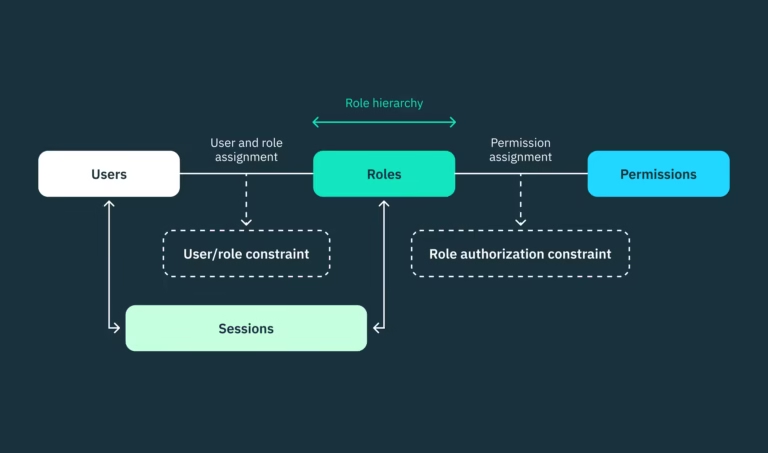
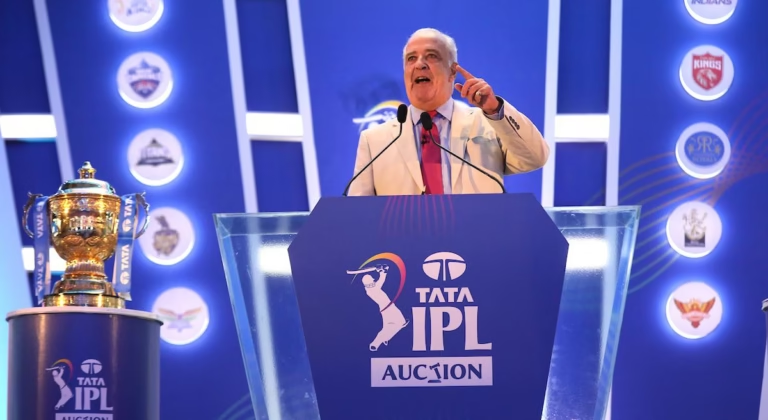




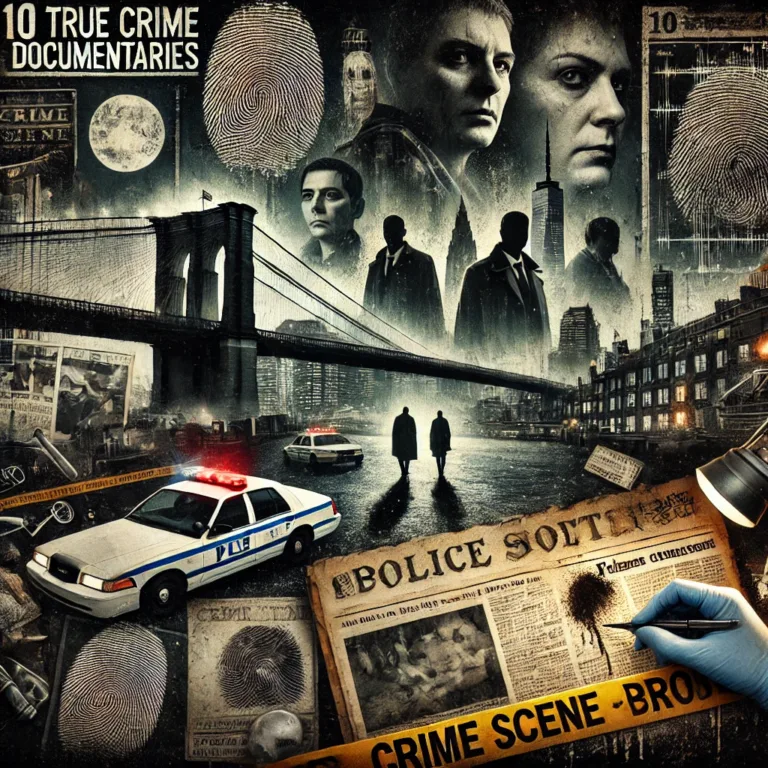

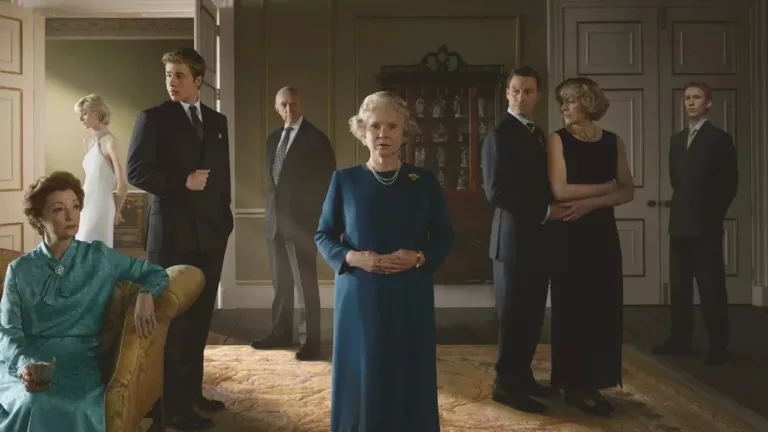
1 thought on “Unmissable Indian Web Series of 2024: Our Top 10 Picks”
Comments are closed.